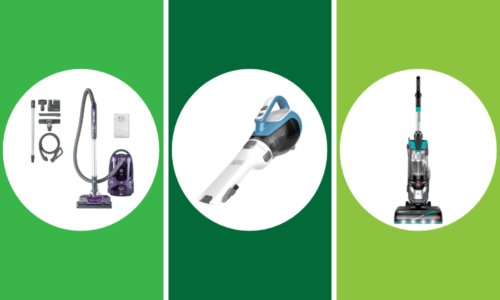High-paying jobs tend to come with a great deal of stress. It’s a trade-off: If you want to make a lot of money, you have to be willing to work long hours and put up with an incredibly stressful job.
But there is good news: Using data from the Occupational Information Network (O*NET), which measures how stressful a given profession is on a scale of 1 to 100 (a low number equals lower stress), it’s possible to identify jobs that won’t leave you a ball of nerves at the end of the day.
To give you a sense of the rating scale, obstetricians and gynecologists have a 97 stress rating (which makes sense) whereas models score a 24 (this also checks out).
Even better—many of the low-stress jobs pay well, too. We merged this research with average salary data from Glassdoor to find low-stress jobs that pay at least $70,000 a year on average.
O*NET determines stress levels by measuring how often a employee must deal with criticism and how effectively they manage stressful situations.
So whether you are just starting out in your career or you are thinking of making a change, here are some lucrative fields that won’t give you gray hairs.
1. Optometrist
Six out of 10 people in the developed world wear glasses or contacts. And who they turn to for help with their vision? Yep, optometrists, who make around $110,397 a year and have a stress score of 70—not too bad.
2. Marine Architects
No, marine architects don’t build underwater skyscrapers. Instead, they ensure that ships are stable and meet performance standards. They have a stress level of 71, and they make around $85,000 a year. Ay, ay, captain!
3. Orthodontist
Everyone wants straight pearly whites. More than 4 million people get braces each year. Orthodontists make over $240,000 each year, with a stress level of 67. (No word on what the stress level is for the person in the chair.)
4. Treasurer
Was Stacy your favorite “Babysitter’s Club” character? (She was the treasurer, as she was the best at math.) For our purposes, it’s an umbrella term that covers everyone in the treasury field, including chief financial officers, comptrollers and financial directors. They have a stress level of 59, but they make bank—CFOs earn around $315,000 a year on average. Matheletes unite!
5. Astronomer
How cool would it be to study the stars all day? Well, how cool would it be if you made $104,000 for doing so, with a stress level of 62? Only downside: It requires a doctoral degree in many cases.
6. Geodetic Surveyors
Um, what? Geodetic surveyors “measure large areas of the earth’s surface using satellite observations” and other methods. They measure just about everything from the land to the sky to the ocean floor to polar ice caps.
They are said to be crucial for national development, yet they have a low stress number of 68 and they make about $81,000 a year.
7. Mathematician
Here’s another lucrative job for you number lovers. Mathematicians can make a three-figure salary, and they cope with a low stress level at 57. This is odd, considering numbers generally cause me to flop-sweat.
8. Geographer
Save your “rocks for jocks” jokes, kids. Geography classes are nothing to sneeze at. In fact, geographers can make almost $75,000 a year, with a low stress number of 58.
9. Cost Estimator
Cost estimators are crucial in the business world. They tell clients how much projects are likely to cost. They make around $60,000, and have a low stress level of 61. No wonder it ranked No. 13 on the U.S. News & World Report’s “Best Business Jobs” list.
10. Water Engineer
Water engineers do everything from ensuring proper disposal of sewer water to making provisions for potable water to preventing flood damage. They have a low stress level of 70 and they make nearly $80,000 a year.
11. Materials Engineer
Like working in a lab? Were you always blowing things up with your miniature science kit when you were a kid? Consider becoming a materials engineer and get paid to play in a lab all day. You will make about $95,000 with a stress level of 61.
RELATED: 5 in-demand jobs where you can earn more than $90,000
12. Automotive Engineers
Automotive engineers develop new designs for engines, transmissions and more. They have a low stress level of 71, and they make almost $87,000 a year.
13. Art Director
Do you love art? Do you like directing people and projects? Art directors make over $101,000 a year, and they have a stress level of 69. I’m sure tapping into that creative brain during the day helps to lower one’s stress.
14. Aerospace Engineers
Aerospace engineers design aircraft, missiles and spacecraft. They have a low stress level of 69 and make about $104,810 a year. (Note: There’s definitely a decent amount of schooling you’ll need for this one.)
15. Hydrologist
Water is life. And if the recent controversy in Flint, Michigan, taught us anything, it is that safe water cannot be taken for granted. As a hydrologist, you will study how water moves through the earth. And you will make about $75,000, with a low stress number of 66.
16. Molecular And Cellular Biologists
These biologists study the “biochemical processes within living cells of animals, people, plants and other living organisms.” They also make about $82,150 a year and have a low stress level of 68.
17. Microbiologist
Want to spend your days studying bacteria? Well, you could make over $70,000 doing so, and your stress level would only be 57. Pretty good!

18. Veterinarians
Do you love animals? Want to help them to live long, healthy lives? Well, vets make over $90,000 a year, and they have a low stress level of 41. I guess working with cuddly creatures all day helps to lower your stress! No wonder getting into vet school is so competitive.
Remember: This is another profession that requires years of schooling and other work.
19. Psychiatry
Psychiatrists make about $167,000 a year, and they have a low stress level of 34 (this is after you get through med school, of course). I imagine because they understand the importance of emotional health and living mindfully?
There you have it! Some of the least stressful, high-paying jobs you can get today. Know someone who’s just starting out or thinking of making a career change? Pass this list along—it might help them choose a field!
[h/t: Business Insider]























